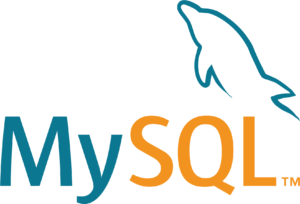MySQL

MySQL is an open-source relational database management system (RDBMS) that is widely used for managing and storing structured data. It is a software application that allows users to create, organize, and manipulate databases, making it easier to store, retrieve, and manage data efficiently.
Developers, like those are REA, are experts at writing clean, efficient, and maintainable code, ensuring that your software functions as intended, is free from bugs, and remains adaptable to evolving requirements. Their problem-solving abilities enable them to address technical challenges, optimize performance, and enhance security. Moreover, developers contribute to the successful development and deployment of software, saving you time, reducing costs, and ensuring that your technology solutions align with your business goals and user needs.
MySQL Features:
- Relational Database: MySQL is a relational database system, which means it organizes data into tables with rows and columns, allowing for the establishment of relationships between different sets of data.
- Open Source: MySQL is available as an open-source software, which means it is freely available for anyone to use, modify, and distribute under the terms of the GNU General Public License (GPL). This has contributed to its widespread adoption.
- Cross-Platform: MySQL is compatible with various operating systems, including Windows, Linux, macOS, and more, making it versatile for different environments.
- Scalability: MySQL can handle small to large-scale databases and is known for its scalability. It can efficiently manage databases of various sizes and complexities.
- High Performance: MySQL is designed to provide high performance for read and write operations, making it suitable for applications with demanding data access requirements.
- Security Features: MySQL offers various security features, such as user authentication, encryption, and access controls, to protect data from unauthorized access.
- Support for Multiple Programming Languages: MySQL can be easily integrated into applications written in various programming languages, including PHP, Python, Java, and more, through the use of APIs and connectors.
- Community and Commercial Versions: MySQL is available in both a free community edition and commercial editions with additional features and support options. This flexibility allows users to choose the version that best suits their needs.
- Storage Engines: MySQL supports different storage engines, such as InnoDB and MyISAM, each with its own characteristics and capabilities, allowing users to optimize their database for specific use cases.
- Replication and Clustering: MySQL supports replication and clustering to achieve high availability and load balancing, ensuring that databases remain accessible even in the event of hardware failures or increased traffic.
Advantages to MySQL:
- Open Source: MySQL is open-source software, which means it’s freely available for use, modification, and distribution. This makes it cost-effective and accessible to a wide range of users and organizations.
- High Performance: MySQL is known for its fast read and write operations, making it suitable for applications that require quick access to data. It can handle a high volume of transactions efficiently.
- Scalability: MySQL is designed to scale horizontally and vertically. You can add more servers to handle increased load (horizontal scaling) or upgrade hardware resources on a single server (vertical scaling) as your database grows.
- Reliability: MySQL has a strong track record of reliability and stability. It is used by many large-scale and mission-critical applications, demonstrating its robustness.
- Ease of Use: MySQL has a user-friendly interface and comprehensive documentation, making it relatively easy to set up, configure, and maintain. This is particularly valuable for developers and administrators.
- Cross-Platform Compatibility: MySQL runs on various operating systems, including Windows, Linux, macOS, and more, providing flexibility in choosing the platform that suits your needs.
- Support for Multiple Programming Languages: MySQL can be integrated seamlessly with many programming languages through APIs and connectors. This versatility allows developers to work with MySQL using the language they are most comfortable with.
- Security Features: MySQL offers robust security features, including user authentication, access control, and data encryption, helping protect your data from unauthorized access and ensuring compliance with security standards.
- Community and Support: MySQL has a large and active user community, which means you can find a wealth of resources, forums, and online communities for troubleshooting and getting help. Additionally, commercial versions of MySQL offer professional support options.
- Storage Engine Options: MySQL supports multiple storage engines, each with its own strengths. For example, InnoDB is known for its reliability and transaction support, while MyISAM is suitable for read-heavy workloads. You can choose the engine that aligns with your specific use case.
- Replication and Clustering: MySQL provides replication and clustering options for high availability and fault tolerance. This allows you to distribute data across multiple servers and ensure continuous access even in the face of hardware failures.
- Data Warehousing: MySQL can be used for data warehousing and analytics, allowing you to store and analyze large volumes of data efficiently.
- Community and Commercial Versions: MySQL offers both a free community edition and commercial editions with additional features and support options. This flexibility allows you to choose the right version based on your project’s requirements and budget.
